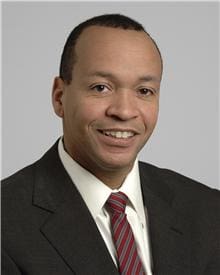 “I am passionate about finding innovative ways to improve men’s health. I am always looking for programs that are uniquely designed to reach men, get them engaged in their health, and help them live healthier, longer lives,” writes Andrea Simon, Ph.D., principal and founder of Simon Associates Management Consultants (SAMC), in a recent article, “How Cleveland Clinic reduces men’s health disparities,” recently published by FierceHealthcare.
“I am passionate about finding innovative ways to improve men’s health. I am always looking for programs that are uniquely designed to reach men, get them engaged in their health, and help them live healthier, longer lives,” writes Andrea Simon, Ph.D., principal and founder of Simon Associates Management Consultants (SAMC), in a recent article, “How Cleveland Clinic reduces men’s health disparities,” recently published by FierceHealthcare.
In her article, Dr. Simon introduces Charles Modlin, M.D., kidney transplant surgeon, urologist, founder and director of the Minority Men’s Health Center at the Cleveland Clinic’s Glickman Urological and Kidney Institute, and executive director of Minority Health for Cleveland Clinic.
Why focus on men’s health?
According to Dr. Simon, Modlin is very concerned about the health disparities among people of different racial and socioeconomic groups. As an African American, he became particularly alarmed about these disparities among African American men. However, it is not only African American men who often shun doctors and fail to seek preventive health services.
Men of all races and ethnic groups, whether they are insured and/or employed, often do not go to the doctor, she says. Yet men die between five and 10 years younger than women, and they die from cardiovascular disease, cancer and stroke much more frequently. And African American males suffer on average a seven- to eight-year-shorter life expectancy compared to white men.
Eleven years ago, Modlin thought of a way to reach out to men, help them learn how to take care of themselves, facilitate their access to the healthcare system, and hopefully help them live better and healthier lives. He was particularly interested in the needs of African American men, as well as men who were uninsured, underinsured or insured but uninvolved with the healthcare system.
After this year’s 11th annual and very successful Men’s Health Summit attracting 3,000 men to the Cleveland Clinic’s Minority Men’s Health Center, it seemed the right time to take his learning and experiences and encourage other institutions to address men’s health needs in their own communities.
How does the Men’s Health Center engage men in their care?
Here are several very effective initiatives:
- Outreach done in a way that reflects the interests and habits of a community’s men. Modlin found that conducting health status inquiries and screenings where men hang out (e.g., barber shops) is very different from trying to get them to come to a doctor’s office.
- Engagement with churches and community groups—connecting with men where they are and with the people in their circles.
- Easy access to care at clinics, including regular hours, along with culturally-sensitive doctors, nurses and staff who are well trained on how to communicate with minority men.
Andrea J. Simon, Ph.D., is a former Marketing, Branding and Culture Change Senior VP at Hurley Medical Center in Flint, Mich. A corporate anthropologist, she also is president and CEO of Simon Associates Management Consultants.




